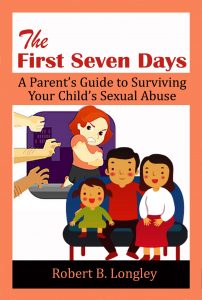Earlier this week Secretary of Education Betsy Devos announced that she would be rolling back some Obama era campus sexual assault policies. Some are seeing this as a Trump administration assault on women’s rights. Others see is as a more balanced approach to the problem of college sexual assault. The jury is still out. The current approach is more focused on the needs of victims, but it is clearly an imperfect system for all concerned.
This is just the latest in a series of changes in policies and approaches that I have been unlucky enough to have a front row seat on for the past 30 years. I was a senior at Lehigh University when Jeanne Clery was murdered in her dorm. After winning a lawsuit against the university, her family led the charge for uniform crime reporting on college campuses. The Clery Act has been the core of sexual assault reporting on college campuses, but it doesn’t solve all the problems. Having had sexual assault impact my own family over the years, I’ve taken an interest in ways to improve the experience for victims and their families through writing and creating case management software for sexual assault – http://www.advocacypro.com .
Sexual Assault Challenges to Colleges
College is an absurd place where the rules of society don’t always apply. Most of it is written off as just part of the college experience, but not always. The estimate that 1 in 4 women will experience some form of sexual abuse during the college experience has been a wake up call for many colleges and universities. Only about 15% will actually come forward about their experience.
Some sexual assaults are clear instances of rape. Others are less cut and dry. Signed consent forms are a solution for some schools to cut down on “he said, she said” instances. Do we really have to go that far though? Maybe. Many schools have a policy that assumes being drunk means unable to consent. It’s probably a good assumption, but does that cover both people being drunk? These are some of the details that cloud many sexual assault cases on campuses.
Legal or Disciplinary
Schools tend to take either a legal or disciplinary approach to sexual assaults. Some let the police handle cases; others bring the issue before a disciplinary committee. There are advantages and disadvantages to both. The issue that the Devos decision is likely to impact is how the accused are handled. Labeling someone as a rapist is a bell that is hard to un-ring. Even if the accused is not found guilty, the stain of being accused doesn’t go away. Also, police and disciplinary committees don’t always get it right. This can leave all parties with a negative experience.
Schools can also be at risk based on how they handle situations. Failure to record assaults or provide services to victims can at a minimum result in Clery Act and Title IX violations. Many cases go further and result in multi-million dollar civil settlements. Most lawsuits and victimizations could have been avoided with better education, record keeping and service availability.
Common Sense Choices
Regardless of what political forces may be at play, doing nothing and waiting is never a good idea. There are some common sense steps that all schools should take to both reduce sexual assaults and ensure better outcomes when it does happen.
- Provide mandatory sexual abuse education to all students and staff every year. You can’t fix a problem if you don’t talk about.
- Provide apps for campus safety notification like http://www.campusorb.com
- Provide a support line, direct message or chat channel for students to report or discuss sexual assaults before making a formal report.
- Use a victim focused case management system such as http://www.campussafetypro.com to ensure a continuum of care between campus police and counseling resources. Clery Act reporting alone doesn’t always support the needs of victims.
- Be transparent about crime statistics on campus and make a commitment to providing a safe environment for victims to report.
- Provide individual and group counseling services regardless of need to provide proof of assault.
These are just some of the easier fixes that any college can take while policies are being hashed out. I encourage schools to add to this list and share what works for them. The problem of campus sexual assault is not going to be fixed by policies from Washington. We have to all work on it together.
Let us know if we can help you dealing with your family’s sexual abuse situation. For ideas to get started please check out our book on what to do during the early days after disclosure.

